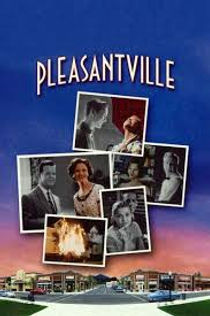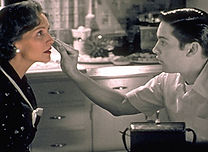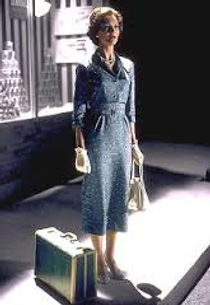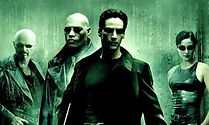
Grade 12 Creative Writing Portfolio

Pleasantville
JANUARY 6, 2015
1. The first sign of color in the town is seen by Skip, after spending a night out with (and hence having sex for the first time with) Mary Sue, when he notices a red rose blooming in a bush. When word of the discovery gets around, cars, bubblegum, and teenagers themselves become colored after the loss of their ignorance. Stunned, Betty sees the faces of the cards in color after she begins to wonder what occurs at Lover’s Lane and learns from Mary Sue what sex is. After neglecting to serve her husband dinner according to his routine expectation, Betty’s face itself becomes colored, as she disrupts her role as housewife. Johnson first sees the paintings in color as he delves into his love for art, and Bud is introduced to the world of color while driving to Lover’s Lane with Margaret. However, as almost everyone in Pleasantville develops some color to their faces, neither Mary Sue nor Bud themselves become colored until towards the end of the story. Though Mary Sue has been around with many guys in Pleasantville, she doesn’t become colored until she begins reading literature, remembering the content of previous books she had once neglected. Bud becomes colored when he hits the boy threatening to rape his mother across the face.
1.a. By the end of the film, the term colored is associated with sin and evil, as deemed by those who are not colored. “No coloreds” signs begin showing up in store windows and those in black and white refer to those in color with disgust, as when Whitey reprimands Bud for failing to attend the town meeting and spits out an “insult” about the influence his “colored girlfriend” has on him. Those who are colored are supposed to feel ashamed, as does Betty when she first realizes she is, but in truth with growth they feel the farthest from it. Those in color are separated from those in black and white, as depicted in the courtroom scene, to represent something like a racial barrier. The town people who take pride in the system of Pleasantville are ignorant, and cannot allow themselves to accept something that is different from themselves.
2. After Bud and Mary Sue arrive, Pleasantville's routines begin to crumble and brains begin to bubble. The townspeople start to think and feel independently from what is expected of them. Johnson learns possibilities outside of his simple "wipe-the-counter, wait-for-Bud-to-do-the-next-step" ritual, and Betty stops answering to "Honey, I'm home." Basketballs stop going in the hoop every shot, words start appearing on the blank pages of books, and teenagers realize there's more to a date than a burger at Johnson’s soda shoppe. With their arrival comes fire, rain, tears, fighting, pain; everything that is anything less than perfection.
3. It is human nature to fear change. When Pleasantville is swept by a wave of irreversible change, the people in charge start to lose their power and believe they have no choice but to prohibit what they see as threatening. Bans are enforced upon Lover’s Lane, the library, and even colors of paint beyond the realm of black, gray, and white. They're afraid of thought that they cannot control because it is dangerous to the harmony of their utopia, and further are afraid of something they don't yet know anything about; what is inside of all of them.
4. It is not until the end of the movie that conclusions can be drawn about David’s real mother. She seems to neglect her children to some extent as she is too acclimated with everyone and everything else going on around her. She goes away and leaves her children home so she can meet a man, and try to feel better about herself. By the end of the movie, when the man is a disappointment, she only feels worse and blames it on herself. As she cries to David, confessing that she is a mess, David advises her that “life isn’t supposed to be anything” and that she doesn’t have to be something that she’s not because she’s great how she is. It’s an important moment for his mother as she realizes that she should do what she wants and not what is expected of her by anyone else, as she had previously thought. Quite similarly, Bud helps his mother realize that she does not need to fulfill the double standard expected of her. Prior to his journey to Pleasantville, Betty, as every other wife in the town, was nothing more than a housewife. She was supposed to have dinner ready for her husband every night and act as a stepping stool for him, though deep down she wasn’t happy. Bud’s arrival aided in her rebirth as a woman who can satisfy her own needs and do what she pleases. Betty’s love and care for Bud allows him to begin to appreciate his mother in the real world.
5. Before David and Jennifer showed up in Pleasantville, Mr. Johnson had always stuck to his routine. He would do some tasks, wait for Bud to do the next ones, then he would do whatever came after. Upon their arrival, Bud became distracted by everything else happening in the town (and the fact that they were in a television show), so Mr. Johnson didn’t know how to think independently and finish the tasks that were “designated” for Bud. However, when Bud gradually explained to Mr. Johnson that he doesn’t need Bud to put the lettuce on the buns to complete the burger, the first signs of Mr. Johnson’s enlightenment became evident. At this point, Mr. Johnson begins to think; something he hadn’t really done before, and begins to contemplate different possibilities of life. He becomes very distracted by everything he understands that he can like, such as art. When Bud introduces to him a book from the library full with artwork, Mr. Johnson sees the photos in color, and quickly himself becomes colored too, as he indulges himself in paint and canvases. Though the town bans paint in color and destroys his soda shoppe, Mr. Johnson stands strong against the oppression with the support of Bud, and together construct a mural in color. Mr. Johnson falls in love with Betty and discovers his own personal preferences.
On the other hand, Betty had always been a stereotypical housewife, cleaning the home and cooking for her family. She obeyed to what her husband would tell her to do and do nothing outside of her typical routine. Her character is quite curious, and she begins to wonder and question Mary Sue about sex. It is upon her learning that Betty understands change and the concept of nonconformity, and begins to see color, herself becoming colored. At first, she wishes to cover up her color with makeup, as she is ashamed by the change. But after realizing that the color is okay, becomes more comfortable. Betty’s marriage begins to fall apart as she stops attending to her husband’s expectations, as she simultaneously falls in love with Mr. Johnson.
6. In the beginning of the movie, Pleasantville is full with ignorance and repression, lacking freedom, chaos, enlightenment; nearly everything that David and Jennifer's previous world possesses. However, because there is neither independent thought nor emotion, the townspeople do not understand that they are missing out on something beyond Pleasantville. Therefore, in their "perfect" little dystopia, everyone is content, whereas in David and Jennifer's world, nearly no one is truly content with their life. David and Jennifer's travel to Pleasantville is crucial to the town's development into a better society, where choice is possible.
7. Prior to her journey to Pleasantville, Jennifer is a shallow, extraverted teenager girl focused only on her reputation. When she gets to Pleasantville, she gains popularity and quickly becomes indulged in spilling secrets of the “real world” to other teenagers. Though she “does it” with many different guys, however, she doesn’t become colored as everyone else is. By the end, when she realizes she should not be telling the townspeople anything more that could distort their world, and becomes intrigued by books, she realizes that it is better to have free-will (rather than do what her friends in the real world are doing) than to be numb and go with the flow. Books and education are her passion, empowering Jennifer with the realization that no one should make her feel like she needs to act a certain way, and that it’s acceptable to disrupt what is considered the norm.
8. Prior to his journey, David is an introverted teenager who spends his time mainly in the house, enticed by the television show Pleasantville. Internally he is disappointed by his lack of friends and a social life, and seems to be quite hard on himself for it. In Pleasantville, he begins to thirst for the popularity that Jennifer initially receives by revealing secrets to the other teenagers, and allows himself to get carried away in enlightening them, as he primarily had advocated against. Over the course of the movie he comes to the realization that change is acceptable, and that it's okay to step out of his comfort zone. When David and Mr. Johnson stand up against the norm by painting the mural and staying strong at their court case, David learns that reputation and whether people like him or not doesn't matter, as long as he is doing what he pleases and standing up for what he believes in.
9. Within the movie, there are many underlying Biblical archetypes. Pleasantville can be compared to the Garden of Eden, as they both represent ideas of innocence, naivety, and perfection. However, when David and Jennifer appear and disrupt the "pleasantness" of the utopia, everything begins to change and the town becomes colored, as people begin acting in ways that are deemed sinful. In the Biblical story, Eve is tricked into eating the forbidden fruit, further bringing both knowledge and evil to all of mankind. Similarly in Pleasantville, there is a loss of both innocence and ignorance as the content of books is introduced (knowledge) and teenagers begin going to Lover's Lane to perform the forbidden (and evil) act of sex. Toward the end of the movie, Margaret picks an apple from a tree and hands it to Bud, who then eats it. At this point, in comparison to the Bible story, God, who is angered by all the sinning, unleashes a ferocious storm of thunder and rain, which had previously never happened in Pleasantville before. Additionally throughout the movie, there are Biblical references such as the burning tree in Bud and Mary Sue’s front lawn when Pleasantville starts to become “enlightened”, and a rainbow as to signal God’s forgiveness following the prior storm.












The Matrix
MARCH 9, 2015
1. Initially, I had no expectations nor prior knowledge of the Matrix. I only knew that the Matrix was considered to be one of those “classic films that everyone must see at least once.” At first, I was very confused, in part because I couldn’t hear much of the dialogue. However, science fiction movies that confuse me in the beginning always seem to gain my immediate interest, because I know that in the end they will portray some sort of important message. I found that, after the plot began to escalate, I was very much enjoying the movie and couldn’t wait to proceed watching it during the following class period. Though some parts were a bit corny (the action scenes that the Matrix is most-noted for), I saw the content as very intriguing and meaningful. I will definitely watch it again on my own time.
2. The major parts of the film that stood out to me were the descriptions of the Matrix and Neo’s introduction into the Matrix. I had a sudden epiphany that technology has a phenomenal influence on our civilization today- to the point that it’s beginning to be scary. Though robots may not literally be taking over our lives as in the movie, figuratively we are losing our humanly-selves to technology, as we spend so much of our days mesmerized by and dedicated to screens. People believe that the rapid development of various “smart” technologies is making life easier, but realistically it seems to be making the population that isn’t taking part in the creation of such technologies, both dumber and more ignorant. As a whole, we are failing to see the “truth,” of what such developments are doing to us.
3. The Matrix is all based on an idea; the idea that everything we know is nothing more than an illusion. Within the Matrix, people are fooled to believe that the way that they view life is how it actually is. However, the Matrix truly exists to mask us from the truth; the world we live in is simply a product of our imaginations. While waiting to meet with the Oracle, a young boy tells Neo, “Do not try to bend the spoon. That’s impossible. Instead only try to realize the truth...There is no spoon.” The boy’s words further suggest that the answers we seek lay inside of us, and the only way to reach them is to first realize that all that seems to exist before our eyes, does not.
4. Morpheus and his followers believed that the Matrix was evil because it distracts the people living within it from the truth, and what is really going on. Everything that surrounds them is a lie, a complete illusion, yet the people are ignorant of what they are missing out on. Morpheus wants people to realize that what they consider to be "free-will" is the farthest thing from it. In fact, they are literal slaves to computers, providing the machines with the energy they need in order to continue to run and dominate. Similarly, and quite unfortunately, Americans are corporate slaves. Our constant hard work and earnings provide the corporations of America with fuel to keep controlling us. We are distracted by continuous new technology that seems fun yet meaninglessly kills time. We think we have choices, but we don't. We think we are free, but we never will be.
5. In the Matrix, and for the most part, in our world as well, the peoples’ lives are determined by fate. Everything has a predetermined answer, and because the world is nothing more than an illusion, any belief of having choice is a misconception. Neo’s actions throughout the film are driven by the desire for free-will. Neo does not initially believe in the Oracle’s prophecy, stating that he is The One. Belief in such a prophecy would further suggest that he believes in his fate that would be the result of the prophecy. If he were to have free will, then the prophecy would be entirely meaningless. However, Neo’s life is simultaneously determined by fate; he allows the Oracle to serve as a guide to him in his following decisions, as Morpheus had suggested she would. Everything that the Oracle said came true in the end, suggesting that as much as Neo believed in free-will, he could not escape his fate.
6. Morpheus believes that “the Matrix is the world pulled over your eyes to prevent you from seeing the truth,” the truth being that we are complete slaves to machines. We have allowed computers to become such a focal point in our lives, spending so much time developing and improving them, that the computers eventually became bigger and smarter than us as a species. And because of it, we as humans are no longer born, but grown, to serve as the battery source for such artificial intelligences that have taken over our lives. However, we are still blind to the fact that it is the technology that is controlling us, not us controlling the technology. Everything that we know is a lie, and until we look inside ourselves for the answers, we will never know the truth.
7. The notion is not that people are unsatisfied living in the Matrix; they are completely satisfied, because they believe that there is nothing wrong with the way they are living. Though they are ignorant to the truth, they are not being physically nor emotionally harmed; "What they don't know can't hurt them." In reality, whether inside or outside of the Matrix, life is exactly the same, the only true thing separating the two lifestyles is a surplus of grim knowledge that unmasks the truth behind the way in which they are living.
8. I believe that pain and suffering are reminders that we are alive. If everything were to be perfect and everyone were to always be happy, then life would be completely pointless- how would we know “happiness” if “happiness” is what we got all of the time? Suffering makes us want something more, something better- the reason that progress is achieved at all. In our world, there is no such thing as a Utopian society because they do not function correctly. We strive for perfection, but in truth, when we get anywhere close to what we believe perfection could be, things get shaky, frightening, and too dream-like to be presented as reality anymore. In the film, the first Matrix was designed to be a perfect human world, where no one would suffer and everyone as happy. However, it ended in disaster, as do all Utopias.
BONUS. The Matrix seems to make a number of Biblical allusions. Neo can be loosely compared to Christ in the film, as they both take on the role of a savior/messiah. In the end, Neo is resurrected from the dead in order to liberate mankind from the Matrix and attempt to enlighten them with the truth. However, I don’t think that Neo is meant to resemble Christ exactly. Neo does not die for the sins of others, but rather “for his own,” unlike Christ.
9. A world without any rules or controls initially provokes a sense of fear. We are taught that rules are in place to keep us safe and to keep our society in tact, that they are not there to harm us but only to help us. However, quite similar to the people living in the Matrix, as a society we could currently be very ignorant to all the possibilities in a world without restrictions. We lean so much on such rules and controls that we may very well be unaware of what we could accomplish without them. To some extent, I think that rules are necessary, but the extent to which they are enforced at this point is too much. A world without rules could easily go either way, for better or for worse. As long as we were to learn how to control ourselves and keep our civilization together, however, I believe that a world without boundaries or borders could be amazingly beneficial to our development. For example, to focus on crime, I believe that there is so much crime in our world because there are so many rules, just asking to be broken. If we were given more free-will, I think that the crime rates would drop tremendously. Additionally, in our society, the “outside thinkers” that stretch the rules are typically the people to make a difference. Morpheus and his small group of followers had achieved so much because they were “enlightened;” if as a whole, we became enlightened as such, the outcomes would be unbelievable.
10. One of the most significant issues of The Matrix is Neo’s being deemed “The One” and whether or not he can accept such a title. Throughout the film, Neo’s journey can be paralleled with the archetype of the “Hero’s Journey.” His journey begins with a call to adventure that separates Neo from his ordinary world, as he awoken at his computer by a message on the screen. When he is summoned by the mysterious people that show up at his door, he initially refuses the call, but after noticing the white rabbit tattoo, accepts. Neo meets Trinity and crosses the threshold as he come to terms with what is happening. He arrives to his office job only to be tested by his enemies, the Agents. However, at the same time he is gaining his Allies, such as Morpheus over the phone. After being held by the Agents, Neo escapes with the help of Trinity and her accompanists, when next he meets Morpheus. Neo chooses the red pill and begins to understand the Matrix, then meets the Oracle and is programmed with various skills that he practices, further leading to the team’s approach. With his new skills, Neo and his team journey into the Matrix to represent the ordeal. Because Cypher turns into a traitor, the Agents end up on their tails. Morpheus becomes detained by the Agents, leaving Neo and Trinity to capture him back. After a treacherous battle, the two come to rescue Morpheus, the reward- however, on the road back, Neo becomes trapped in the Matrix, left alone to have a one-on-one battle with the Agent. Unfortunately, Neo dies, but is resurrected as a new Neo that is in fact, “The One.” He realizes all that he had neglected before, and returns with the “elixir” of salvation.














